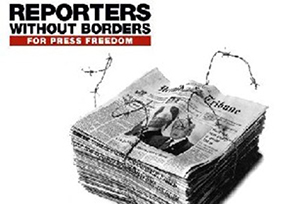
PARIS (Reporters Sans Frontières/Pacific Media Watch): Reporters Without Borders (RSF) has published its annual worldwide round-up of journalists held hostage, imprisoned or missing.
According to RSF’s tally, 54 professional journalists – including one woman – are currently held hostage worldwide, a 35 percent increase on last year.
It is no surprise that Syria is the country where non-state groups are holding the biggest number of journalists – 26.
Daesh, or Islamic State, alone is holding 18, mainly in Syria and Iraq.
RSF secretary-general Christophe Deloire said:
“A full-blown hostage industry has developed in certain conflict zones. We are very alarmed by the increase in the number of reporters held hostage in 2015. The phenomenon is above all linked to the big surge in abductions of journalists in Yemen, where 33 were kidnapped by Houthi militias and Al-Qaeda in 2015, against two in 2014. Thirteen are still being held hostage.”
The number of journalists currently imprisoned, 153, is 14 percent fewer than this time last year. A total of 161 citizen-journalists and 14 media workers are also detained. China continues to be the world’s biggest prison for journalists, closely followed by Egypt, with 22 journalists currently held.
Eight journalists were reported missing in 2015. These disappearances occur mainly in conflict zones, where instability makes it harder to conduct investigations to locate missing journalists, if indeed there is any investigation at all.
Libya, where it is becoming increasingly difficult to obtain reliable information, is the country most affected by this problem.
Four Libyan journalists and an Egyptian cameraman, all employed by privately-owned Barqa TV, were reported missing this year in Libya.
In response to the scale and variety of dangers facing journalists, RSF has produced a fully revised and amended version of its Safety Guide for Journalists in partnership with UNESCO.
Designed for reporters going to high-risk areas, it is full of practical advice on dealing with the dangers awaiting in the field and stresses the importance of preparing well before leaving.
The handbook is available in print and online versions in French, English, Spanish and Arabic.
The full report



